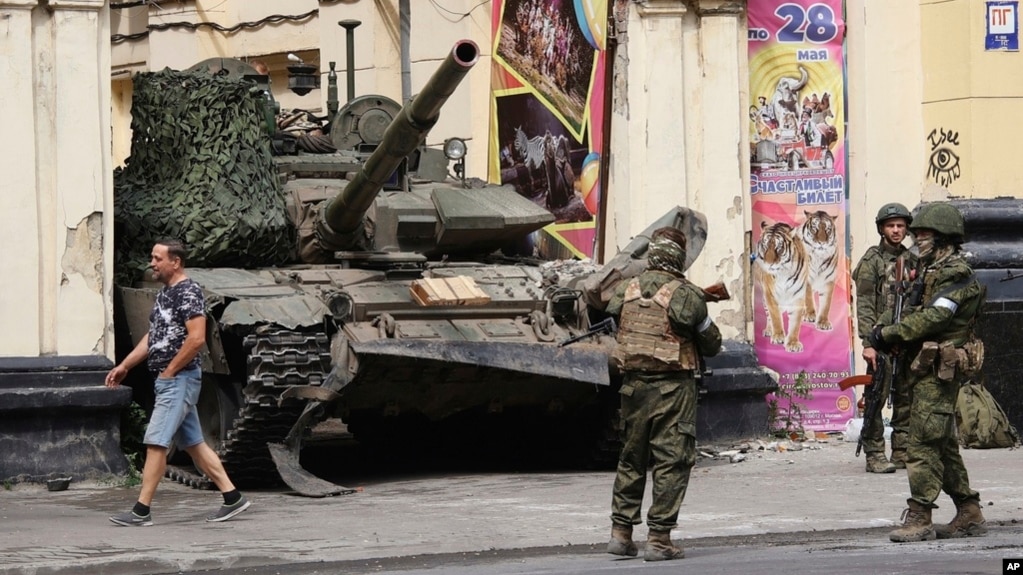Introduction:
In a surprising turn of events, the Wagner mercenary group has initiated a rebellion against the Russian military leadership, leading to escalating tensions in Russia. Yevgeny Prigozhin, the leader of Wagner, has claimed that his forces have taken control of military sites in Rostov-on-Don and expressed his determination to topple Moscow's military leadership. The following article provides an overview of the situation, shedding light on the rebellion's origins, Moscow's response, the Wagner troops, and the implications for Russia's ongoing conflicts.
Origins of the Rebellion:
Yevgeny Prigozhin's discontent with the military top brass has been simmering for months, primarily due to what he perceives as their failure to adequately equip his private army in eastern Ukraine. He has accused them of bureaucratic delays and taking credit for victories achieved by Wagner. The breaking point came when Prigozhin accused Moscow's military leadership of ordering strikes on Wagner's camps and causing significant casualties among his forces. Fuelled by anger, he vowed to take action and put an end to these perceived injustices.
Moscow's Response:
The Kremlin has responded swiftly, stating that "measures are being taken" to address the rebellion. In an effort to ensure security, Russia has increased its presence in Moscow and other regions, such as Rostov and Lipetsk. President Vladimir Putin has labeled the Wagner mutiny as a "deadly threat" to Russia and called for national unity. He condemned the actions of the Wagner mercenaries as treason and promised that they would face inevitable punishment.
Understanding the Wagner Troops:
The Wagner group, a private army, has been involved in conflicts across the Middle East and Africa, although they had previously denied their involvement. Last year, Yevgeny Prigozhin publicly acknowledged founding the group and recruiting soldiers from Russian prisons in exchange for amnesty. In the ongoing conflict in eastern Ukraine, Wagner has played a pivotal role in Russia's operations, despite incurring significant losses. Notably, they spearheaded the assault on Bakhmut, securing the site for Russia at great cost.
Impact on Russia's War Efforts:
The rebellion represents an unprecedented challenge to President Putin's longstanding rule and presents Russia with its most significant security crisis since his ascent to power in 1999. This internal conflict diverts attention and resources from the ongoing battles in Ukraine, just as Kyiv is launching a counteroffensive to reclaim lost territory. The Ukrainian army closely monitors the situation, while Moscow warns of Kyiv's potential offensive actions near Bakhmut. The mutiny has not gone unnoticed by global leaders, with the United States, France, and Germany closely monitoring the developments.
Conclusion:
The Wagner rebellion has thrust Russia into a state of turmoil, with implications for its domestic stability and ongoing conflicts. Yevgeny Prigozhin's grievances against the military leadership have erupted into open rebellion, challenging President Putin's authority. The situation demands careful observation as it unfolds, given its potential to impact not only Russia but also the broader geopolitical landscape.

Comments
Post a Comment